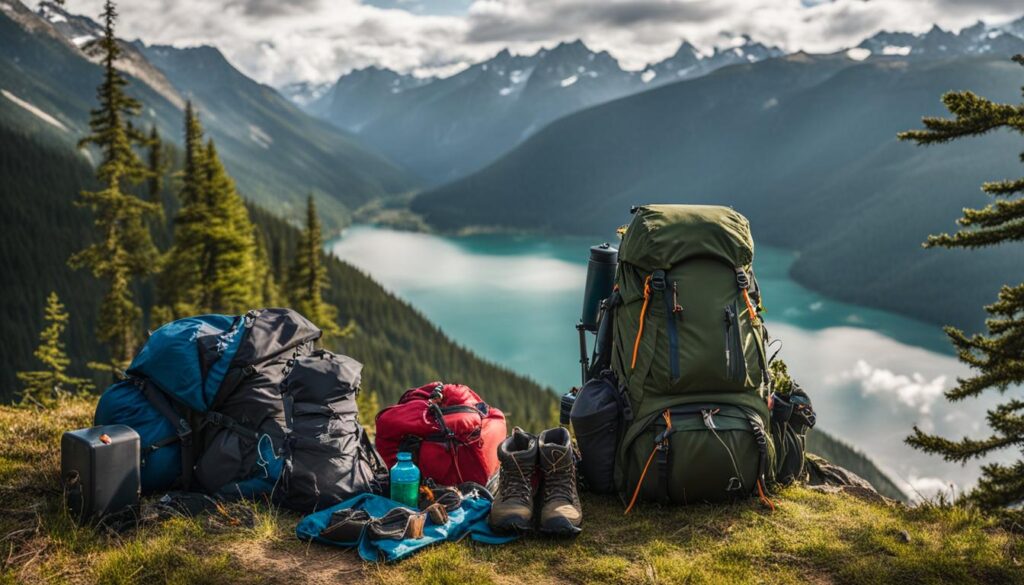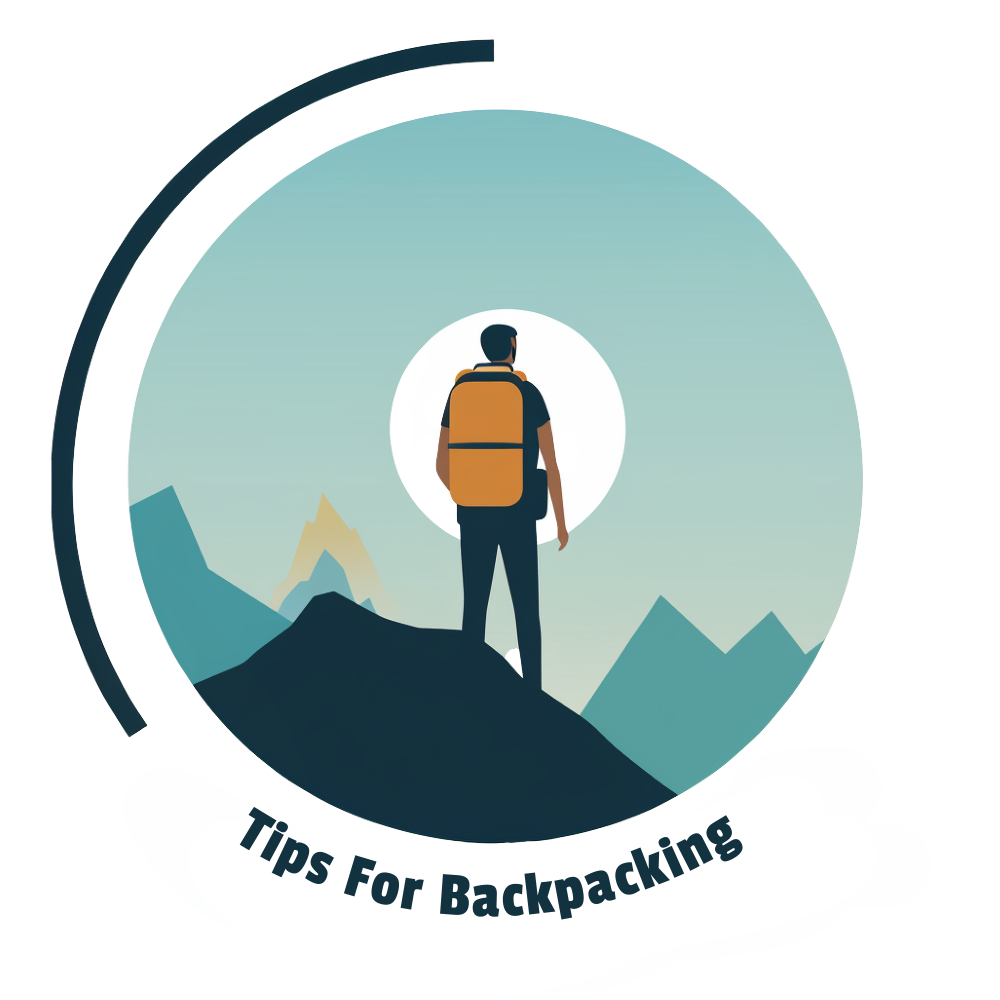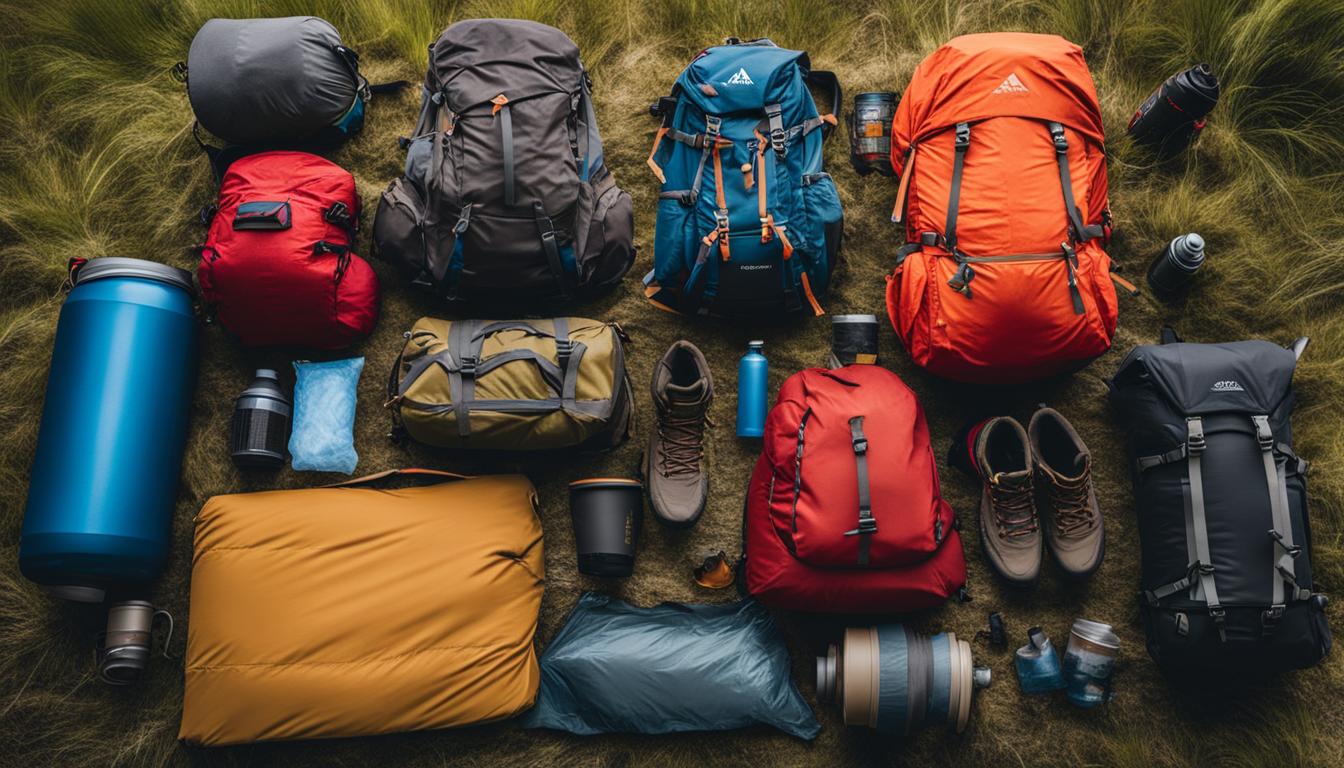Embarking on your first backpacking adventure is an exhilarating endeavor. The thought of exploring new territories, immersing yourself in nature, and experiencing the thrill of the unknown is enough to make anyone eager to hit the trails. However, it’s essential to be well-prepared to ensure a successful and enjoyable trip.
Before you set off on your backpacking journey, take the time to gather the necessary backpacking essentials and gear. Create a comprehensive backpacking checklist that includes items such as a sturdy backpack, a reliable tent, a warm sleeping bag, proper hiking shoes, and sufficient food and water supplies. Having the right gear will not only keep you comfortable but also ensure your safety in the wilderness.
As a beginner backpacker, it’s crucial to educate yourself about the fundamentals of backpacking. Take advantage of backpacking tips and guides available online or from experienced backpackers. Learn about the terrain you’ll be encountering, the weather conditions, and any potential hazards you may face. A little research can go a long way in making your trip more enjoyable and hassle-free.
Finally, embrace the excitement and adventure that awaits you. Keep an open mind, be flexible, and allow yourself to truly immerse in the backpacking experience. Remember that backpacking is not only about reaching your destination but also about the journey itself.
Key Takeaways:
- Prepare a comprehensive backpacking checklist with the necessary essentials and gear.
- Educate yourself about the fundamentals of backpacking through tips and guides.
- Research the terrain, weather conditions, and potential hazards of your backpacking destination.
- Stay open-minded and flexible, embracing the adventure that awaits you.
- Remember that backpacking is as much about the journey as it is about reaching your destination.
Common Mistakes to Avoid on Your First Backpacking Trip

Embarking on your first backpacking adventure can be an exhilarating experience, but it’s important to be aware of common mistakes that beginners often make. By learning from the blunders of others, you can have a more successful and enjoyable trip. Here are some crucial tips to help you avoid rookie mistakes:
Lack of Preparation
One of the biggest mistakes novice backpackers make is failing to adequately prepare for their trip. This can include not researching the trail or destination, underestimating the physical demands, or neglecting to pack essential items. To avoid this, take the time to thoroughly plan your trip, familiarize yourself with the trail conditions, and create a comprehensive backpacking checklist. This will ensure that you have the necessary gear, clothing, and supplies to make your journey safe and comfortable.
Overpacking
Another common mistake is overpacking, which can weigh you down and make hiking more challenging than necessary. It’s important to carefully consider each item you bring and assess its usefulness. Stick to the essentials and prioritize lightweight, multipurpose gear. Remember, you can always reevaluate and adjust your packing list based on your specific needs and experiences.
Ignoring Safety Measures
Safety should be a top priority when backpacking, especially for beginners. Neglecting safety measures such as not carrying a first aid kit, disregarding weather forecasts, or failing to inform someone of your itinerary can lead to potential dangers. Always pack a well-stocked first aid kit, check weather conditions before setting out, and let someone reliable know your detailed plans. Additionally, familiarize yourself with basic wilderness safety and navigation techniques to ensure a safe and enjoyable trip.
Not Being Mindful of Leave No Trace Principles
Preserving the natural environment is essential for the sustainability of backpacking destinations. Not adhering to Leave No Trace principles, such as leaving trash behind or disturbing wildlife, can damage ecosystems and spoil future experiences for others. Educate yourself on the principles of Leave No Trace and strive to minimize your impact on the environment. Practice proper waste disposal, respect wildlife and vegetation, and tread lightly on the trails.
| Mistake | Consequence | Prevention |
|---|---|---|
| Lack of Preparation | Inadequate gear, discomfort, and potential danger | Thoroughly research and plan, create a checklist |
| Overpacking | Excessive weight, difficulty in hiking | Prioritize lightweight, multipurpose gear |
| Ignoring Safety Measures | Potential hazards, injuries, and emergencies | Carry a first aid kit, check weather conditions, inform someone of your plans |
| Not Being Mindful of Leave No Trace Principles | Environmental damage and degradation | Adhere to Leave No Trace principles, practice proper waste disposal |
What Gear Do I Need to Prepare for My First Backpacking Experience?
When preparing for your first backpacking experience, there are a few essential backpacking gear suggestions to consider. You’ll need a reliable backpack, sleeping bag, tent, sturdy hiking boots, water purifier, portable stove, and lightweight cookware. Don’t forget a first-aid kit, navigation tools, and proper clothing for different weather conditions.
Tips for Your First Solo Backpacking Trip
Embarking on your first solo backpacking trip can be an exhilarating adventure. The freedom and self-reliance that come with traveling alone in the great outdoors can be incredibly empowering. However, it is important to take certain precautions to ensure your safety and enjoyment during your solo journey.
First and foremost, make sure you thoroughly research and plan your route in advance. Familiarize yourself with the area you will be exploring, study the maps, and take note of any potential hazards or challenging terrains. It is also a good idea to inform someone you trust about your travel plans, including your anticipated itinerary and expected return date.
When it comes to packing for your solo backpacking trip, prioritize safety and efficiency. Apart from the standard backpacking essentials, consider carrying extra emergency supplies such as a first aid kit, a whistle, and a portable charger for your phone. Additionally, invest in a reliable GPS device or download a hiking app that can track your location even when you are offline.
Lastly, trust your instincts and listen to your body throughout your solo adventure. Take regular breaks, stay hydrated, and be mindful of your limitations. Remember, the purpose of your trip is to enjoy the experience and connect with nature. Soak in the breathtaking landscapes, challenge yourself but not to the point of discomfort, and most importantly, savor every moment of your first solo backpacking trip.

